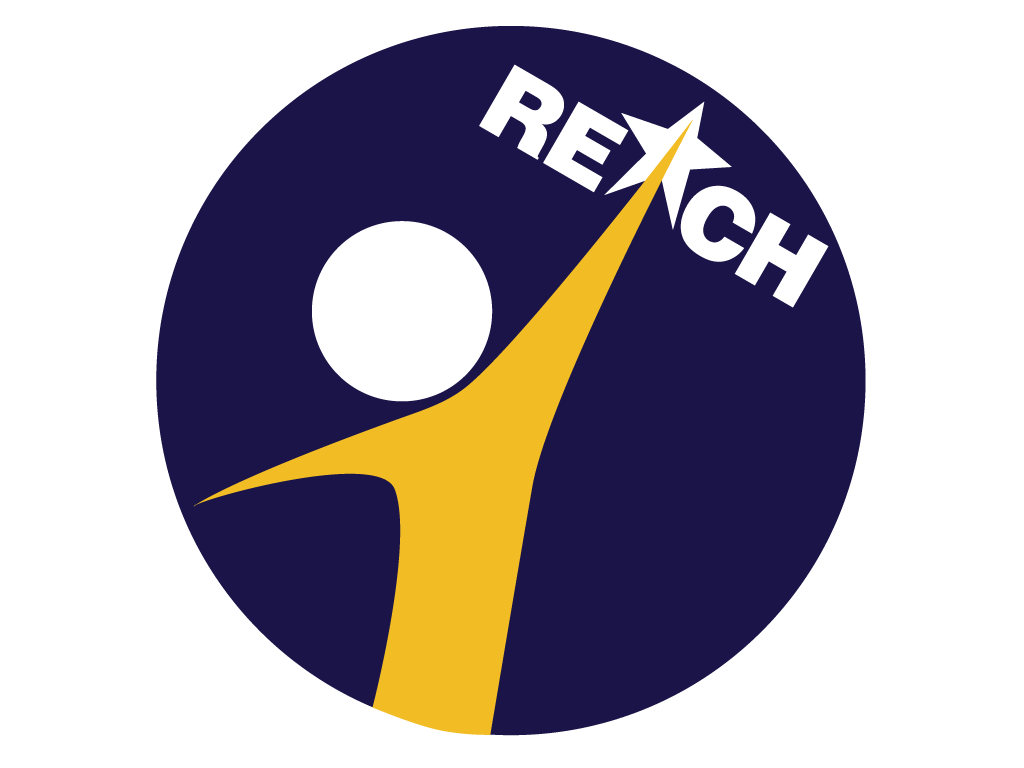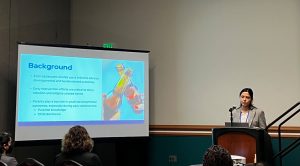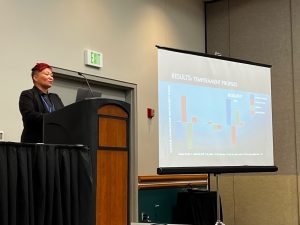07 Apr ReACH Lab Graduate Students Present at SRCD Conference
ReACH Lab graduate students, Nilofar Fallah-Sohy and Sarah Hartmann, presented at the Society for Research in Child Development (SRCD) Conference. The 2023 SRCD conference took place from March 23-25 in Salt Lake City, Utah.
Nilofar’s presentation titled “Examining Reciprocal Relations Between Parental Knowledge, Child Disclosure, Parental Legitimacy Beliefs, and Adolescent Alcohol Use” examined prospective bidirectional effects between parental knowledge and child disclosure alongside youth-reported alcohol use and perceived legitimacy of parental authority. This multi-informant study’s findings showed that parental knowledge and child disclosure were found to weaken in response to youth alcohol use. A positive reciprocal association between parental knowledge and child disclosure was found in early adolescence, whereas an inverse reciprocal association was found between parental knowledge and child alcohol use in later years. This study also found that parental legitimacy beliefs were associated with reduced alcohol use. In turn, youth alcohol use led to reductions in parental knowledge and child disclosure.
Sarah’s presentation titled “The Role of Sleep as a Pathway Linking Temperament and Problem Behavior in Adolescence” assessed newly identified sleep profiles as potential mediators between previously identified profiles of early adolescent temperament and subsequent internalizing and externalizing symptomatology. The findings converge with prior work suggesting that adolescent sleep significantly impacts problem behaviors. Conversely, adolescent temperament was not shown to significantly impact proximal problem behavior when accounting for prior behavioral difficulties. Nonetheless, present findings suggest that positive sleep hygiene may help to mitigate behavioral problems in adolescents.




No Comments